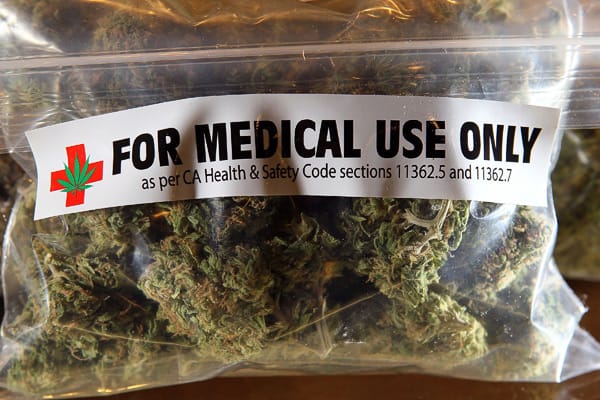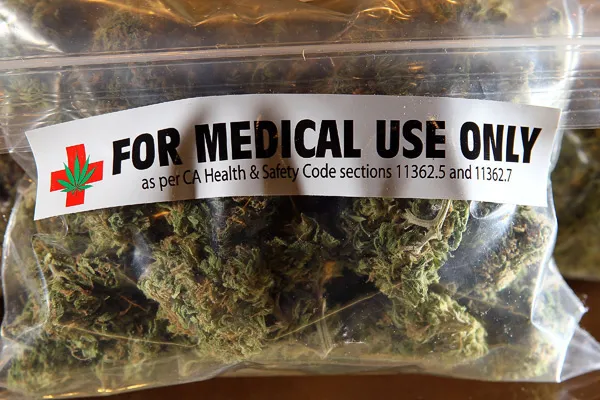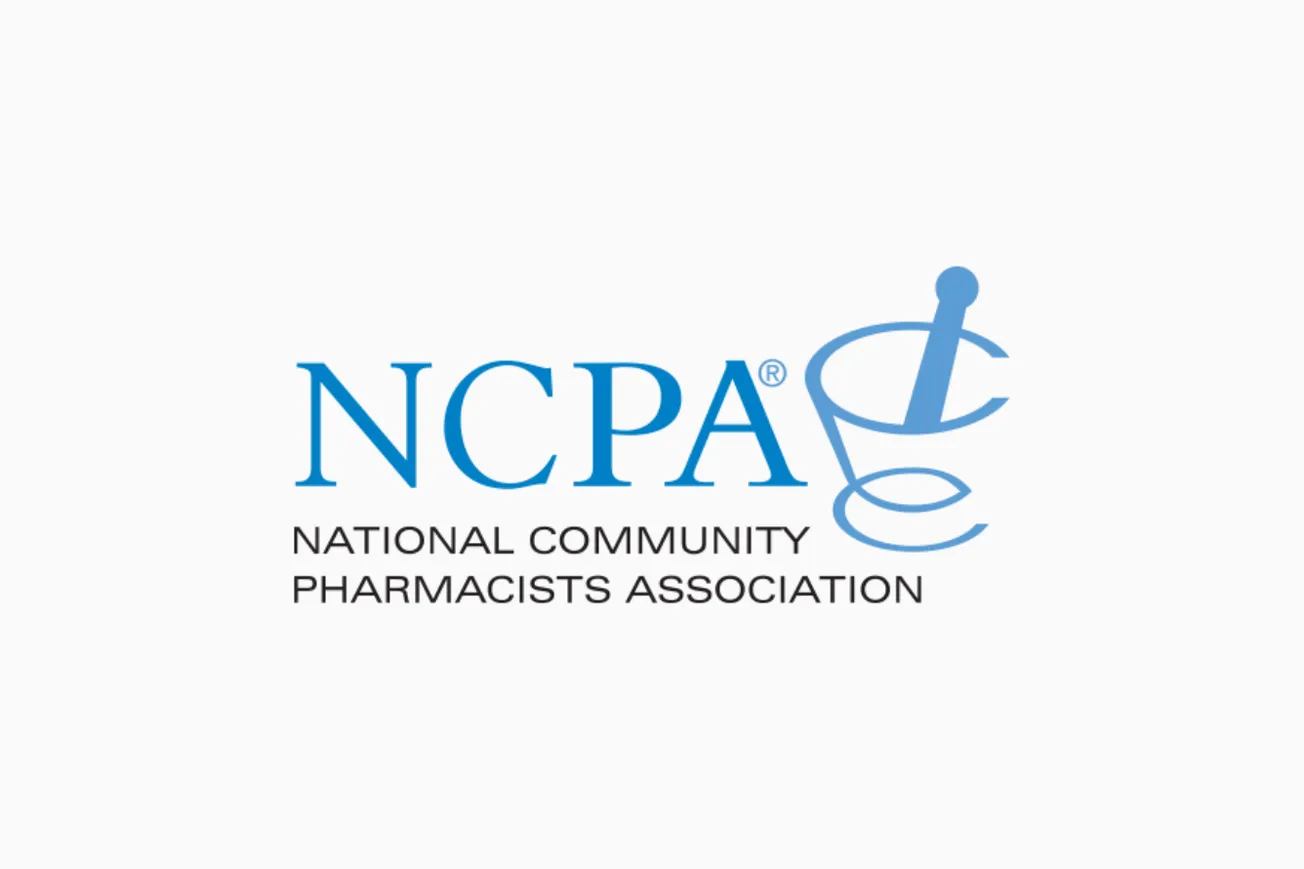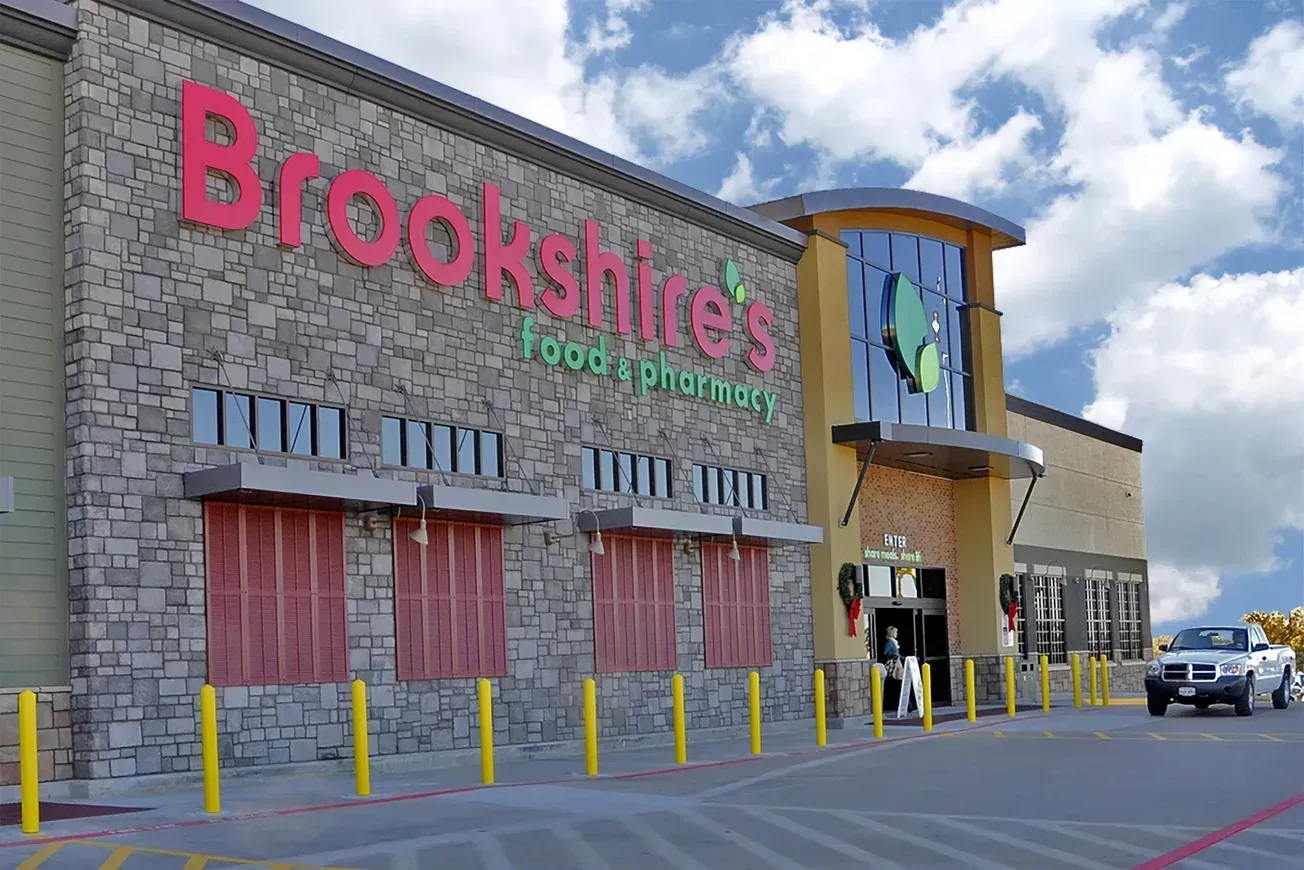TORONTO — Shoppers Drug Mart has confirmed media reports that it’s proceeding with plans to provide medical marijuana to patients, with guidance from a pharmacist.
Canada’s largest drug chain, part of Loblaw Cos., has applied to become a licensed producer of medical marijuana strictly for the purposes of distributing it, according to spokeswoman Tammy Smitham.

“As we have indicated in the past, we believe that allowing medical marijuana to be dispensed through pharmacy would increase access, safety, quality and security for the thousands of Canadians who use the drug as part of their medication therapy,” Smitham said in a statement.
“We have no intention of producing medical marijuana,” she explained. “But we do want the ability to dispense medical marijuana to our patients in conjunction with counseling from a pharmacist, and we are hopeful that the government of Canada will embrace that opportunity for enhanced patient care.”
News reports had emerged in February that Shoppers Drug Mart had made inquiries with medical marijuana suppliers and that another leading Canadian drug chain, London Drugs in western Canada, had expressed interest in dispensing it.
In August, Health Canada announced the Access to Cannabis for Medical Purposes Regulations (ACMPR). Under the new rules, Canadians authorized by their health care provider to use cannabis for medical purposes are allowed to produce a limited amount for treatment, designate someone to produce it for them, or buy it from a Health Canada-licensed medical marijuana producer. Patients using medical marijuana also must register with Health Canada.
The ACMPR, which went into effect on Aug. 24 in the wake of the Federal Court of Canada’s Allard v. Canada decision, replaced the Marijuana for Medical Purposes Regulations (MMPR) that had governed Canada’s medical cannabis program.
Canada’s pharmacy industry, however, expressed some disappointment with the new rules because they stopped short of designating pharmacies as the go-to source for the safe management and dispensing of medical marijuana. Health Canada said it will continue to assess other models to provide access to cannabis for medical purposes, including pharmacy distribution.
“Pharmacists have the expertise to mitigate potential risks associated with medical marijuana, including harmful drug interactions, contraindications and potential addictive behavior,” Canadian Pharmacists Association (CPhA) chief executive officer Perry Eisenschmid stated when the ACMPR was announced. “Pharmacist management and distribution would improve access for Canadians in urban, rural and remote communities, in compliance with the requirements set out by the Federal Court in Allard, under the supervision of a licensed health care professional, through an established distribution system proven to protect patient and public safety.”
CPhA noted at the time that, in international jurisdictions where recreational cannabis is legal, pharmacist dispensing of medical marijuana has been shown to restrain the emergence of a gray market and safeguard the medical system from abuse by recreational users.
“By providing access to marijuana for medical purposes through pharmacy, Health Canada and the Task Force on Marijuana Legalization and Regulation can ensure that Canada is in line with international best practices,” Eisenschmid added. “Recognizing that Health Canada is responding directly to the Court’s ruling and its deadline, we are encouraged that Health Canada has committed to studying pharmacy distribution as the regulations are evaluated going forward.”
Currently, Health Canada has licensed 36 medical marijuana producers under ACMPR, led by 21 in Ontario and eight in British Columbia. These producers are licensed to provider dried marijuana, fresh marijuana or cannabis oil for medical uses.
Medical marijuana has been used to treat pain from a variety of conditions, symptoms of glaucoma, muscle spasms from multiple sclerosis, nausea from chemotherapy, appetite and weight-loss issues from chronic illnesses, seizure disorders and Crohn’s disease, according to WebMD.
Along with regulation of cannabis for medical purposes, the Canadian government has begun exploring ways to legalize marijuana. This summer, the federal government launched the Task Force on Marijuana Legalization and Regulation to gather input on the design of a system to legalize, regulate and restrict access to marijuana. Plans call for the task force to present a final report on a new legislative and regulatory framework in November.
In its comments to the task force, CPhA urged that a dual system governing recreational and medical marijuana. “To ensure optimal health outcomes, Canadians requiring marijuana for medical purposes should receive it within a health care setting that provides appropriate clinical oversight. Patients who require marijuana for medical purposes should not be forced into the recreational market,” the association stated in mid-September.
CPhA also recommended that the government protect health and safety in the recreational cannabis market by introducing a public education campaign upon legalization, setting a minimum age for legal purchase, requiring product warnings, enacting strict product management regulations and mandating training for retail staff.








